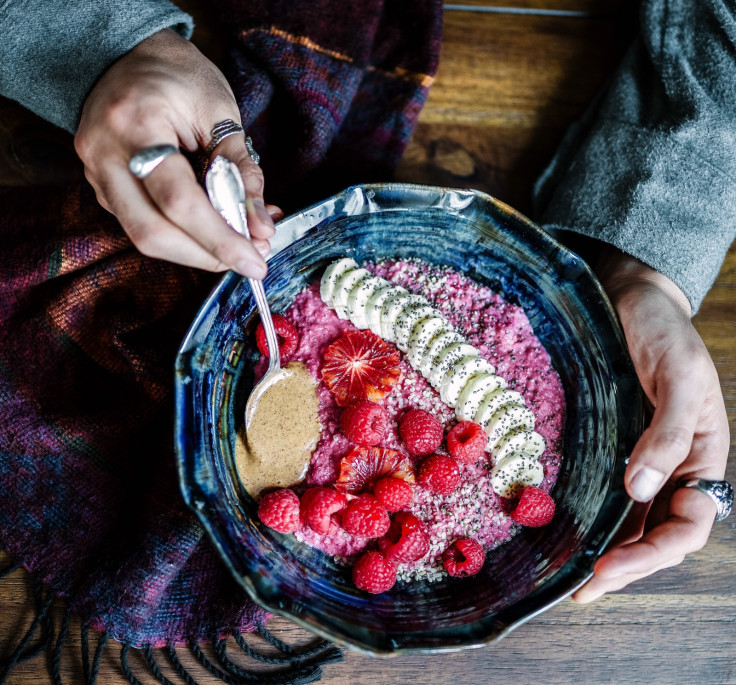Veganuary: These are the biggest health mistakes people make when they go vegan

KEY POINTS
- Veganuary sees people pledging to try veganism for the whole of January
- But the diet can be high in sugar, salt and saturated fat if followed incorrectly
With our clothes a little tighter after the indulgences of the Christmas period, lots of us have entered 2018 pledging to eat healthier. And for some that means following Veganuary.
Launched in 2014, Veganuary sees meat-eaters and vegetarians alike challenging themselves to stick to a plant-based diet for 31 days. Followers must ditch all animal products – including meat, fish, milk, cheese, eggs and honey.
The evidence suggests that, followed correctly, a vegan diet packed with grains, vegetables and fruits can be healthier than the typical Western fare of meat and two veg.
A 2016 study at Oxford University found that adopted universally, a vegan diet would save 8.1 million lives by 2050, preventing chronic diseases as well as cutting greenhouse gas emissions caused by industrial farming.
"If followed correctly a vegan diet generally results in a wider variety of fruit and vegetables being eaten and a diet higher in fibre, due to the choices that have to be made when animal sources are excluded from the diet," Clare Thornton-Wood, an NHS dietitian, told IBTimes UK. It can also be higher in antioxidants, potassium, folate and Vitamin A, she said.
But switching overnight from a diet centred around animal products to one where a person only consumes plants can be tough to stick to.
"There are so many available options now – it's great. But if you think you're a healthy vegan by relying on vegan cheese on toast for every meal you would be mistaken," British Dietetic association spokesperson, Aisling Piggott, told IBTimes UK.
"We are so keen to find the 'magic answer' when it comes to diet and nutrition that most people jump to the conclusion that if a vegan diet can be healthy then meat and animal products must be unhealthy. All this will achieve is swapping one unbalanced diet for another," said Piggott.
As showcased by the hundreds of photos of chocolate, crisps and alcohol on the Accidentally Vegan Instagram account – which highlights high street foods that are manufactured using plant products– plenty of junk food fits the lifestyle. Of course, these can be enjoyed in moderation, but those newly acquainted to veganism must be careful not to fall back on snacks high in sugar, salt and saturated fat to fill the gap left by meat.
"Some alternatives, for instance milk alternatives, can be high in sugar and much lower in protein than the animal products," said Thornton-Wood. "Another common issue is relying on carbs and vegetables and therefore consuming a diet too low in protein. You need to ensure a wide variety of foods are eaten in order to get the full range of micronutrients required."
Eliminating all animal products from the diet also increases the risk of certain nutritional deficiencies, dietitian Priya Tew told IBTimes UK. "Micronutrients of special concern include vitamins B-12 and D, calcium, and long-chain n–3 (omega-3) fatty acids and either a reliance on fortified foods or supplements of these may be needed."
But by thinking ahead and shopping smartly, nutrients can be supplemented with fortified foods such as milk alternatives and cereals, while omega 3 fatty acids are found in walnuts, hemp seeds, flaxseeds, and chia seeds.
B-12, which is required by the brain and nervous system but is only found in animal products, can be taken as a supplement.
"Vegans should aim to have a protein source three times a day," advises Thornton-Wood. "Quinoa, soybeans and amaranth contain all the essential amino acids. Other good vegan sources (although not complete) are pulses, nuts, seeds, chia, oats.
"There is also protein in wheat flour and vegetables. Aim to have at least two good protein sources at each meal: for instance tortilla with black eye beans, pitta bread with hummus or peanut butter on wholegrain toast."
Ideally, veganism will be eased into over time rather than for a month, says Thornton-Wood, as those who swap a meat-filled regimen for one based entirely on plant products might also find the increase in fibre can cause bloating and wind.
And those who reach the end of January and realise they can't hack veganism can safely return to an omnivorous diet, although this is best done gradually. But Tew adds: "Once you have been vegan it could be a great opportunity to eat more plant-based meals and less meat products in your week."







